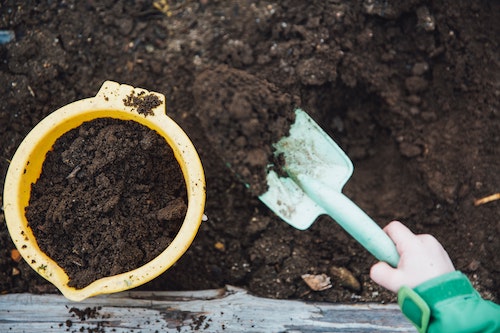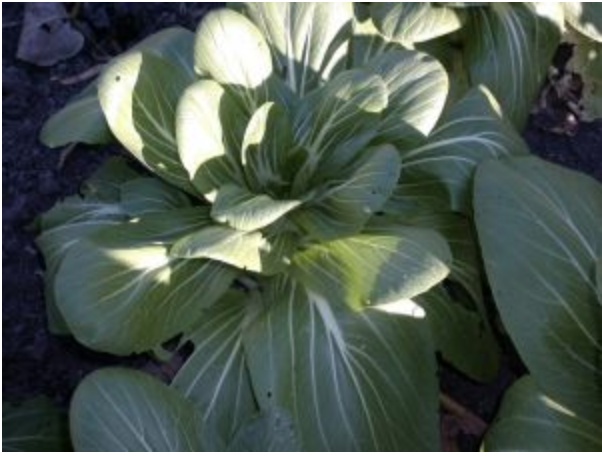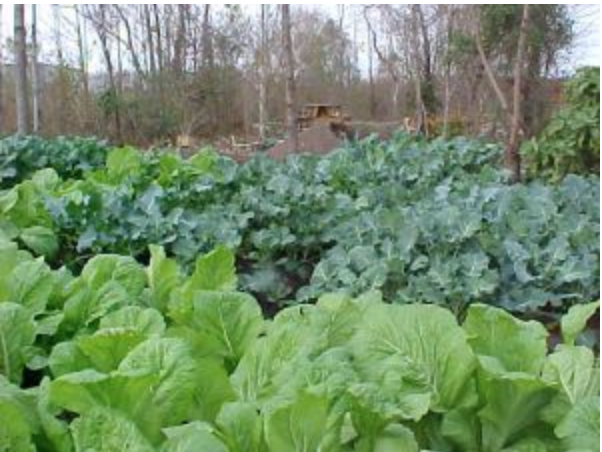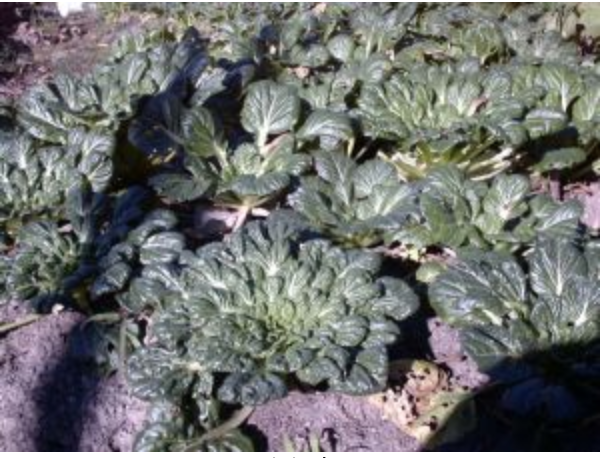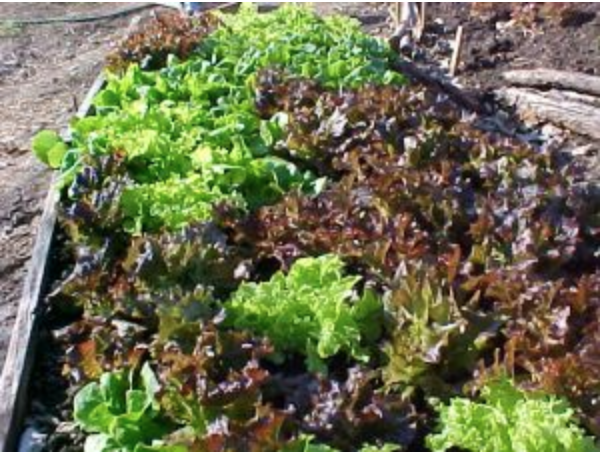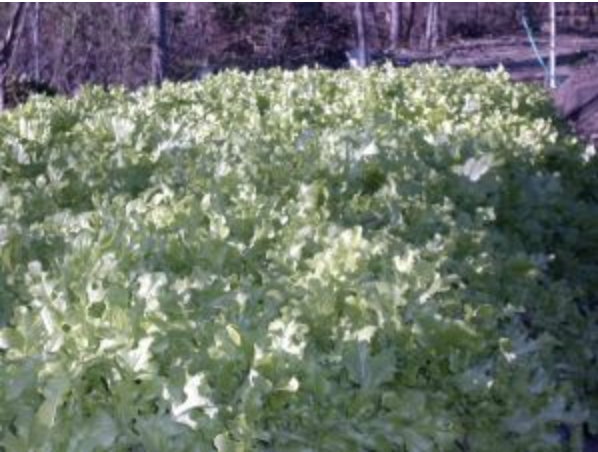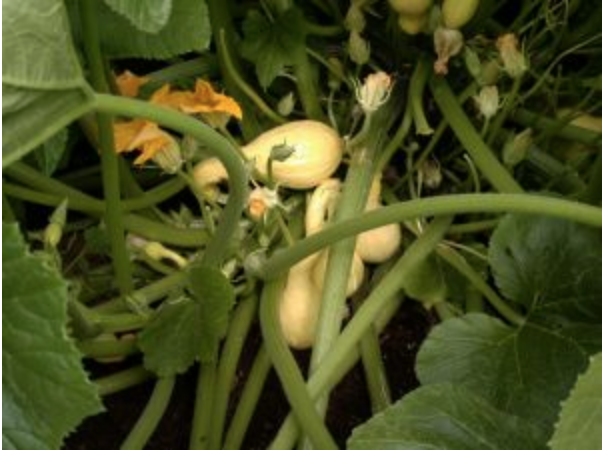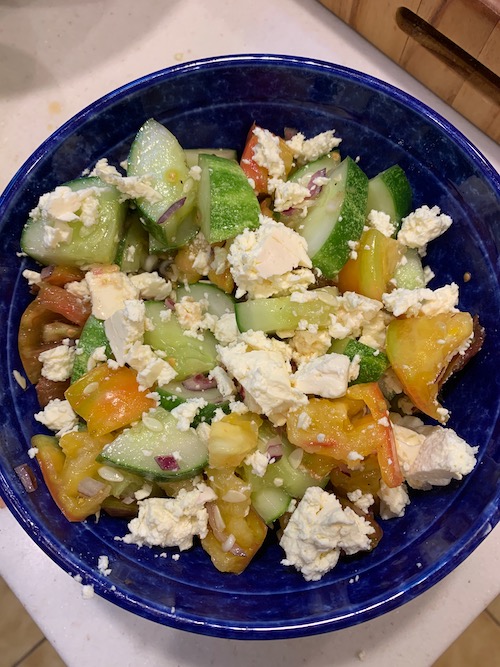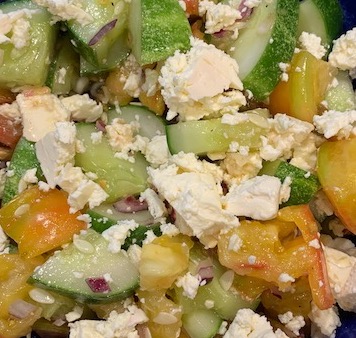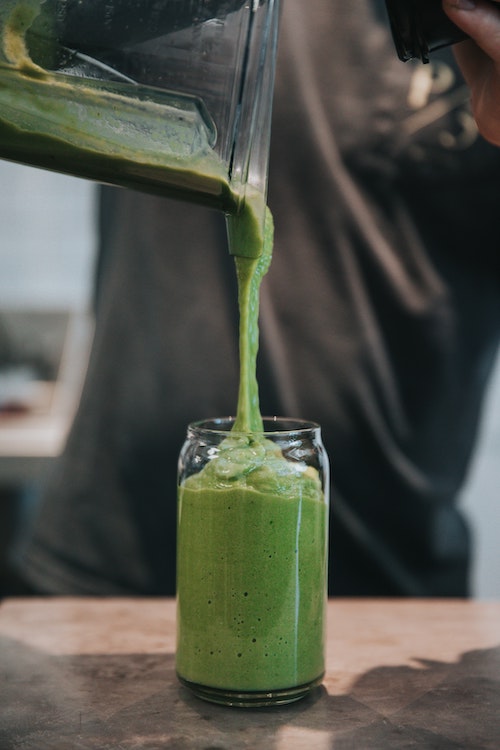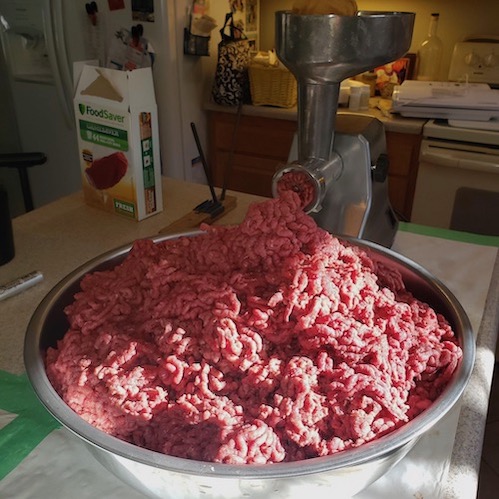When going to the grocery store, do you ever check to see what labels are on the packaging? Do you even know what those labels mean? When looking for oats, do you ever wonder what process they go through before being put in the packaging? Unfortunately for many brands of oatmeal, the original crop is sprayed with a very well known weed killer/ herbicide called Roundup. In this article we are going to focus on the active and most harmful ingredient in Roundup, Glyphosate. This article will give you more insight into what Glyphosate really is, why you should actively try to avoid it in the foods you buy, alternative and healthier options for oats, and other things you should also look for on your food packaging!
What Is Glyphosate?

Glyphosate is a synthetic compound and nonselective systemic herbicide that is widely used to kill weeds and grasses. In simpler terms, it’s the active ingredient in your most common weed killers such as Roundup. Originally registered in the U.S. for use in 1974, Glyphosate is used in agriculture, forestry, residential lawns and gardens, aquatic, and industrial areas to kill any unwanted weeds. When used in smaller quantities, it can also be used to ripen crops and regulate plant growth.
Why Should You Avoid Glyphosate?
There are many reasons why you should try to avoid glyphosate, especially in high levels like using RoundUp. Starting with the biggest concern, according to the IARC ( International Agency for Research on Cancer), glyphosate is classified as “probably carcinogenic to humans”. Even though their evidence was “limited”, they concluded there was strong evidence for genotoxicity in all forms of glyphosate based on real-world exposures and experimental animal studies. This chemical has even been the subject of many lawsuits by people who have developed cancer after using RoundUp for years.
As for ingesting glyphosate through the foods you buy at the grocery store, the effects are a little different. There are no signs that show ingesting this chemical through food causes cancer because of how low the doses are. However, exposure to glyphosate through the food we eat isn't fully understood. There have been animal studies done that have shown the ingestion of glyphosate can be linked to developmental delays, gastric disease, hepatitis, and kidney damage. Furthermore, Despite the fact that the scientific community is still unable to come to a final conclusion regarding the carcinogenicity of glyphosate to humans following consumption, a 2017 study confirmed that prolonged consumption of foods tainted with glyphosate, even at minimal doses, can cause significant damage to the human liver and ultimately lead to conditions like non-alcoholic steatosis and necrosis of the liver.
Glyphosate Free Oatmeal: Important Certifications
USDA Certified Organic
Organic certification by the USDA means that farmers and businesses have met the standards for the growing, processing and handling of their products. If there is a USDA organic seal on your products packaging, the product contains 95 percent or more organic ingredients.
Kosher
In Hebrew, “kosher” means fit or proper.
Kosher certified foods are most sought after by Jewish people who follow the rules of kashrut (a set of dietary laws that Jewish people are permitted to follow). For those who follow these rules, it is a way to show reverence to God and feel connected to their faith.
According to Jewish dietary law, kosher certification means meat and milk products are not mixed together, animal products from non-kosher food animals are not included, and kosher meat is from animals that are properly slaughtered.
Gluten Free Certification
For a product to be considered gluten free it has to exclude any foods that contain gluten, which is a protein found in wheat and several other grains.
Gluten Free Certified means the manufacturer has followed strict steps to prevent gluten cross-contamination and that the product has been tested further by a third-party for the presence of gluten.
Non GMO Project Verified
GMO stands for genetically modified organisms. GMOs are living organisms whose genetic material has been artificially manipulated in a laboratory. Non-GMO means a product was not genetically modified or altered in any way from its original form. In addition, Non-GMO Project Verified means that a product is compliant with the Non-GMO Project Standard. This includes extensive testing for high risk (genetically modified) ingredients that are most likely harmful to the human body.
Glyphosate Residue Free Approved by The Detox Project
First of all, what is The Detox Project? The Detox Project is a research and certification company that encourages transparency and honesty in the toxic chemicals used in the food and supplement industries. They own and run the Glyphosate Residue Free certification program globally. Glyphosate Residue Free certification verifies that your product does not contain the World’s most used herbicide. To be exact, the product needs to contain less than 10 parts per billion of the herbicide.
Vegan Certified
Vegan is a more commonly known label seen on product packaging. For a product to be labeled as Vegan Certified it cannot contain any animal products or products made by animals. Furthermore, In order for a product to be vegan certified, it has to have entirely negated animal testing. Therefore, all vegan products are also cruelty-free.
Why Organic Oats Can Contain Glyphosate

Organic oats go through a different process of being produced than regular oats do. The use of Round-Up or any other pesticide is not allowed to be used on the production of oats labeled as organic, however, these crops can still be contaminated from the residue of glyphosate on surrounding fields.
Another thing consumers don’t know is that big companies get around this problem by using RoundUp as a drying agent (desiccant) on the oats instead of using it as an herbicide. Therefore, since they are not using it as an herbicide, they can still call their oats organic.
Crazy! I know!
This is why you need to specifically look for certified glyphosate free on the packaging of your product!
List Of Glyphosate Free Oatmeal Brands
Below is a list of all oatmeal brands that tested negative for any residue of Glyphosate by the EWG (Environmental Working Group.)
Back Roads - https://www.backroadsgranola.com/

Back Roads granola is an excellent choice for your go-to oats. They pride themselves on their clean and organic ingredients and clearly display their concern on their competitors' use of RoundUp. Their easy to navigate website includes a blog and frequently asked question page, along with an entire page dedicated to an in depth description of every ingredient in their oats. Back Roads also helps different foundations including the Vermont food bank, The Boys & Girls Club, The Winston Prouty Center, and NECCA ( New England Center for Circus Arts).Check out their website for more information on their story and goal to make oats safe to consume everywhere!
Back Roads Mission - “Create the best granola on the planet and have a great time doing it. Seeing that mission through requires a team effort.”
Pros:
- Non-GMO certified organic ingredients
- Kosher
- Certified Glyphosate residue free
- No added sugar (only Vermont maple syrup)
- No added salt
- No canola oil (only sunflower oil)
- Vegan & gluten-free (under 5ppm)
- Complies with industry standards in their gluten-free production
- Certified through Vermont Organic Farmers (VOF)
- Shelf life is 9 months
Cons:
- You will not be able to find these oats large chain grocers like Albertsons, Sprouts, Stop & Shop, Hannaford’s, Trader Joes, etc.
- Does not offer international shipping
Whole Foods 365 Organic Old-Fashioned Rolled Oats - https://www.wholefoodsmarket.com/product/365-by-whole-foods-market-organic-old-fashioned-rolled-oats-42-oz-b07nsrm5g3
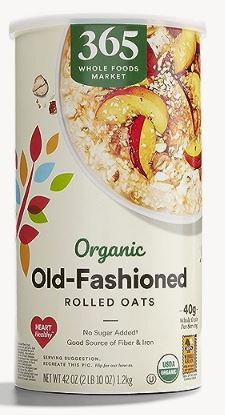
There's always hesitation when it comes to buying from big companies as they tend to get away or “care less” about allowing harmful chemicals in their products. But with that said, even though unfortunately you can only buy from their own website, whole foods is a great option for clean and organic oats. They put their oats through extensive testing to give consumers a safer option for oats. This includes being certified Non-GMO, Kosher, and having no added sugars amongst the other things listed below.
Whole Foods Mission- “Our purpose is to nourish people and the planet. We’re a purpose-driven company that aims to set the standards of excellence for food retailers. Quality is a state of mind at Whole Foods Market.”
Pros:
- Certified Kosher
- Dairy-free
- Vegan and Vegetarian
- USDA certified organic
- No added sugar
- Certified Non-GMO
Cons:
- Only sold in store at Whole Foods stores
- Not Certified Glyphosate residue free
Seven Sundays - https://www.sevensundays.com/

Seven Sundays is a great option for not only oats but also other cereals! Originally founded by a couple in New Zealand, they pride themselves on building a better breakfast “from the ground up.” This includes oats that are free of artificial flavors and ingredients and are made 100% plant based. They are also a Certified B-Corporation which means they are meeting the highest standards for environmental and social impact. Seven Sundays website also includes a blog and a cereal club you can join to make sure you never miss out on deals or restocking your favorite products!
Seven Sundays Mission- “We're rethinking the food system from the ground up, making cereals that improve the health of people & the planet.”
Pros:
- Gluten Free options
- Oat based cereals are Certified glyphosate residue free
- NON-GMO project verified
- Kosher
- No refined sugars
- No artificial flavors
- 100% plant based
- Certified B-Corporation
Cons:
- Not all products sold are certified organic
- Non oat based cereals are not certified Glyphosate residue free
- Packaging not recyclable
Farm To Table - https://farmtotablefoods.com/
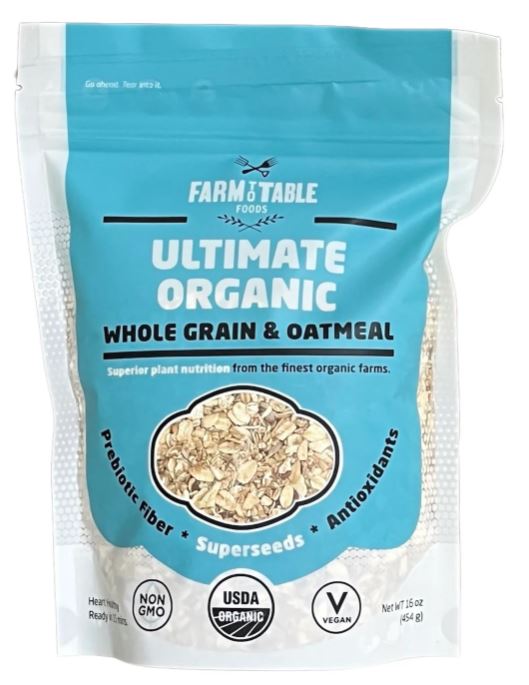
Farm To Table is a good option for when you are only looking for oats to buy. Even though their variety is limited, their company states that they are “perfecting the art of grain mixology.” As a USDA certified organic company, they use less processed methods and utilize recipes that bring out the natural goodness of each individual variety of grain. Their very easy to navigate website enables consumers to find what they are looking for without a struggle. The only downside to the website is that they don’t advertise their certifications, which means you have to look directly at their packaging. But don’t let that discourage you as they are still one of the top choices for oats when it comes to clean eating!
Farm To Table Mission- Perfecting the art of grain mixology.”
Pros:
- USDA certified organic
- Sodium and Cholesterol free
- No artificial flavors
- Fast shipping
- Vegan
Cons:
- Not Non-GMO project verified
- Not kosher
- Website not informative of nutritional value or certifications
- Pricey
Only Oats - https://myonlyoats.com/
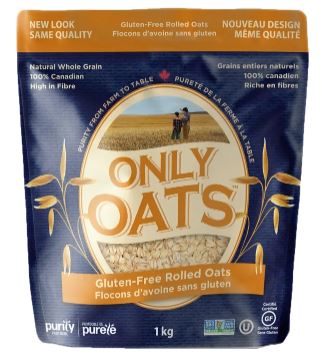
Only oats is one of the “simpler” companies on our list. Instead of focusing on giving consumers a variety, they focus on getting their oats from farm to table as naturally as possible. This includes going through many protocols like the Avena purity protocol and FSSC ( Food Safety Systems Certification). Even though this company only consists of gluten free steel, rolled, and quick oats (along with flour); the website also includes a variety of different recipes you can use them for. Their website is very simple and easy to navigate, and I encourage you to take a look!
Only Oats Mission- “From day one we’ve held ourselves to the highest standards; working with our farmers to implement strict protocols that allow us to deliver the cleanest and most trustworthy oats and oats ingredients.”
Pros:
- Certified Gluten Free
- 100% Celiac safe
- Free of all major allergens and additives
- Certified glyphosate residue free
- Kosher
- Non-GMO project verified
- FSSC (food safety systems certification) verified
- Produced with Avena purity protocol
Cons:
- Lack of variety
- Not sold in large chain grocery stores
- Can not buy on their website
Simple Truth - https://www.kroger.com/b/simpletruth

Simple Truth is a good brand to start with if you are looking for a wide variety of products outside of simple oats. While this makes it harder to identify which products are organic, kosher, etc, the affordability of it makes it worth the search. Their oats are certified organic, free of artificial preservatives, and Glyphosate free; but outside of oats you will have to continue your research as all of their products are not the same. Since the easiest way to shop this brand is on the Kroger website, the easiest way to identify Simple Truth certifications is to look directly on your products packaging. Even though this brand is marketed and sold only on third party websites, don’t let that discourage you as Simple Truth is one of the most affordable options with the widest variety of products!
Simple Truth Mission- “Simple Truth® delivers affordable, unique and simple foods that can be enjoyed the way nature intended.”
Pros:
- Most products are USDA Certified Organic
- Fair Trade certified
- Very affordable
- Recyclable packaging
- No artificial preservatives
- Non-GMO
- Wide variety of products to choose from
Cons:
- Not Non-GMO Project Verified
- Does not have their own website
- Harder to find information on website
Nature’s Path - https://naturespath.com/

Nature’s Path is a brand that I'm sure a lot of us have come across in our local grocery stores. The easy accessibility makes it tempting to grab off the shelves instead of doing our research or buying online. Thankfully, Nature’s path is a great option as it’s certified Non-GMO, organic, and kosher among other things. Being a bigger and more successful brand, they have the luxury of making a wider variety of products for you to choose from. Their website also includes a blog and recipe page, and even a page solely to describe their path and purpose for the company!
Nature’s Path Mission- “At Nature's Path it is our mission to always leave the Earth better than we found it. Beyond our commitment to organic food and farming, as a triple bottom line company, we hold ourselves accountable to doing what's best for people and the planet.”
Pros:
- USDA certified organic ingredients
- Non-GMO project verified
- 97% of packaging is recyclable, reusable or compostable
- All production facilities are zero waste
- Kosher, gluten free, vegan, keto, grain free, and no sugar added options available
Cons:
- Pricey
- Chance of cross contamination with major allergens
Mush Oats - https://eatmush.com/
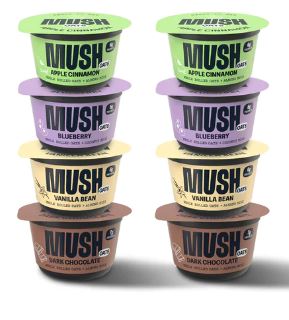
Mush Oats is a top company to look at if you are specifically looking for ready to eat oats. The oats you can put in your refrigerator and in the morning on your way to work. This company is more directed towards consumers with a fast paced lifestyle that may not have the time to make their oats, or may just not want to! Their easy to navigate website includes all of their products, a store locator, and a full page dedicated to their story and the nutritional value in their oats. I urge anybody with a busier lifestyle that still wants to eat healthy and clean to check out the Mush Oats website!
Mush Oats Mission- “Our company was founded on the belief that better food yields better outcomes. Our purpose is to help people maximize their potential by creating ready-to-eat foods with clean and natural ingredients that empower them to live healthier lives.”
Pros:
- Gluten and Dairy free
- Non-GMO project verified
- No artificial flavors, preservatives, or fillers
- Fast shipping
- Easily and widely accessible
- Protein rich and High in fiber
Cons:
- Ready-to-eat oats only (must be refrigerated)
- Not USDA certified organic
Grandy Organics - https://www.grandyorganics.com/collections/everything

Grandy Organics comes in as one of my personal favorites for one specific reason. On their website they allow you to filter what you want based on your diet and the ingredients you are looking for. This makes shopping so much easier for consumers as you can skip past all the products you have no interest in. On top of that, they have dedicated pages for their story, blog, company club, recipes, press, etc. It also happens to be one of the more affordable options!
Grandy Organics Mission- “ We are committed to: Creating delicious organic products, Never using artificial ingredients, and making and using renewable energy.”
Pros:
- Certified organic
- Certified gluten free options
- Certified kosher
- Allergen free
- Non-GMO
- Paleo friendly
- No artificial ingredients
- Source’s energy using solar power
- Certified Fair Trade Ingredients
Cons:
- Non-recyclable packaging
Red Tractor Foods - https://www.redtractorfoods.com/
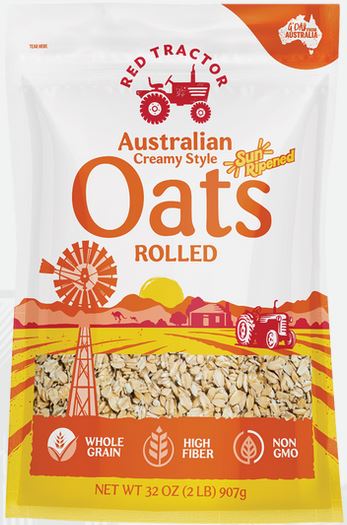
While you can’t buy Red Tractor Foods oats on their website (brings you to a third party website), Taking a look anyways is not a waste of time. They have dedicated pages on where to buy, recipes, their story & farmers, and even an entire page on the health and nutrition of these oats. Even though they don’t have as wide of a variety of products as other companies we have mentioned, if you want a deeper understanding of the oats you are consuming, Red Tractor Foods is a great place for you to start!
Red Tractor Foods Mission- “Our aim is to bring the best quality natural ingredients to you with innovation for both healthy and great tasting foods. Foods that have no nasties, no numbers and no worries. A brand that you can trust 100% of the time that is farmed for taste.”
Pros:
- Non-GMO project verified
- Website goes into depth about the nutritional value in oats
- Gluten free options
- High in fiber
Cons:
- Not certified kosher
- Not USDA certified organic
- Non-recyclable packaging
- Can’t buy straight from website
Possible cross contamination with major allergens
Almond Cow - https://almondcow.co/products/whole-grain-oats-3lb/
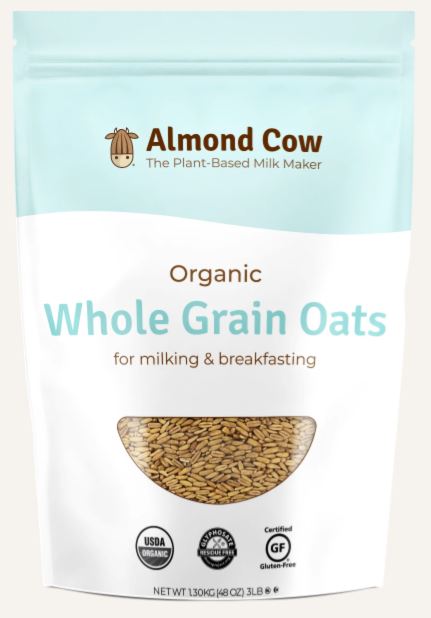
Almond Cow has a few different attributes that separates it from other companies mentioned. The most obvious being that they focus more on the milk that goes into their oats, than the actual oats themselves. They provide the ingredients and machinery to make homemade milk, and get rid of any waste that comes with buying milk from the store. Their website is easy to navigate and they go into detail about their mission to “say goodbye to waste.” Even though this company is less focused on the oats themselves, Almond Cow still cares about the ingredients and nutrition in them, as they take the measures to make sure all of their products are Certified Glyphosate residue free.
Almond Cow Mission- “We’re about being kind to the Earth, no ifs, ands - just nuts about it.”
Pros:
- Certified Gluten Free
- USDA certified organic
- Certified Glyphosate residue free
- Non-GMO
- Halal and Kosher
- Recyclable packaging
- Zero waste
- Variety of products other than oats
Cons:
- Pricey
- Not Non-GMO project verified
- Not available in large chain grocery stores
Laird Superfood - https://lairdsuperfood.com/products/how-bout-dem-apples

Laird Superfood is another company that comes with much more than just your standard oats. This company also sells coffee, drink mixes, supplements, accessories, and other snacks and foods. Like Grandy organics you can shop their website by diet which makes navigating their products so much easier! You can also shop by benefit; Balanced, strengthened, or energized. On their website they also have a page dedicated to their story that includes a podcast from the founder Gabby Reece. Most importantly, you can shop their products knowing ALL of them ( not just their oats) are dairy and soy free, vegan, and much more!
Laird Superfood Mission- “At Laird Superfood, we are committed to the consistency and quality of the products we produce. We believe that the foods you eat should be as good for the earth as they are for you. And we believe that food should enable you to perform at the highest level, no matter what you’re doing”
Pros:
- Gluten free
- Non-GMO certified
- Vegan
- Dairy Free
- Soy Free
- Paleo friendly
- No artificial flavors
Cons:
- Pricey
- Not Certified Kosher
- Not all packaging is recyclable
Oats And Cereals To Avoid
According to the Environmental Working Group, the acceptable level of glyphosate in foods for kids is 160 ppb (parts per billion). Below is a list of cereals and oats containing the highest levels of glyphosate.
- Honey Nut Cheerios Medley Crunch (833 ppb)
- Nature Valley Crunchy Granola Bars, Maple Brown Sugar (566 ppb)
- Nature Valley Granola Cups, Almond Butter (529 ppb)
- Chocolate Peanut Butter Cheerios (400 ppb)
- Nature Valley Baked Oat Bites (389 ppb)
- Nature Valley Crunchy Granola Bars, Oats and Honey (320 ppb)
- Nature Valley Crunchy Granola Bars, Peanut Butter (312 ppb)
- Nature Valley Granola Cups, Peanut Butter Chocolate (297 ppb)
- Nature Valley Fruit & Nut Chewy Trail Mix Granola Bars, Dark Chocolate Cherry (275 ppb)
- Nature Valley Protein Granola, Oats and Dark Chocolate (261 ppb)
- Multi Grain Cheerios (216 ppb)
- Nature Valley Soft-Baked Oatmeal Squares, Blueberry (206 ppb)
- Fiber One Soft-Baked Cookies, Oatmeal Raisin (204 ppb)
- Nature Valley Granola, Peanut Butter Creamy & Crunchy (198 ppb)
- Nature Valley Biscuits with Almond Butter (194 ppb)
Frequently Asked Questions
Does organic Quaker oats have glyphosate?
Organic Quaker oats are produced using methods designed to minimize glyphosate exposure and then tested to ensure levels are as low as possible. However, crops may become contaminated with residue from glyphosate herbicides sprayed on surrounding fields. That’s why they are not a company that can be considered certified glyphosate residue free.
Are all oats sprayed with glyphosate?
Even though most oats are non-GMO (not genetically modified), it is not uncommon for farmers to use weed killer on oats to dry the plants out at harvest time.
What food has the most glyphosate?
Glyphosate is mainly used in agriculture, therefore it's found in high levels most commonly in corn, soybeans, and even chickpeas. Grains (wheat, granola, oats, etc.) can also contain high levels due to farmers using weed killers to dry out the plants.
What cereal has the most glyphosate?
Honey Nut Cheerios Medley Crunch contains the most glyphosate with 833 ppb (parts per billion). The EWG (environmental working group) considers 160 ppb to be the highest level that is safe for children’s food.
Does organic mean no glyphosate?
Any product that is USDA certified as organic must be produced with no herbicides such as glyphosate.
Do Cheerios have glyphosate?
Yes, the levels of glyphosate differ depending on the type of Cheerios, however. The levels of glyphosate in Honey Nut Cheerios (147 ppb) are a lot lower than the levels in Honey Nut Cheerios Medley Crunch (833). You can find the full list of glyphosate levels in Cheerios and other similar brands here.
What does glyphosate do to humans?
Scientists with the Environmental Protection Agency performed an independent experiment and found no risks to human health in the current uses of glyphosate (short term). In the beginning of the article under “Why should I avoid glyphosate?”, expose the possible longer term effects of keeping foods with glyphosate in your diet. However, if you inhale or are exposed to glyphosate herbicide you can experience irritation in your eyes, skin, nose, and throat. In less common cases, long-term effects of direct exposure to glyphosate herbicide can contribute to obesity, depression, inflammatory bowel disease, Alzheimer's, Parkinson’s, and potentially Cancer.
Can you wash glyphosate off food?
No, you can not wash glyphosate off food. It is possible to remove some residue using a vinegar or salt solution, but it is not recommended as it could potentially cause a small chemical reaction and produce a harmful compound.
Final Thoughts
Overall, it's safe to say there are many alternative options to ensure you can eat the foods you love without the risk of ingesting harmful herbicides that could contribute to future health problems. Choosing oats free of glyphosate gives you and your family the benefits of heart-healthy whole grains, essential vitamins, fiber, and other nutrients without concerns of herbicide residue. Glyphosate may seem hard to avoid given how common herbicides are used on crops throughout the world, but hopefully this article has provided some insight on ways to actively eat consciously without making it a struggle. If you are unsure which foods to grab the next time you head over to the grocery store, look for the different labels that were talked about in the article on the packaging. Lastly, remember that organic does not mean glyphosate free. Always look at your product's packaging for the proper certifications before checking out!
You may also like- Organic Cucumber and Heirloom Tomato Salad





